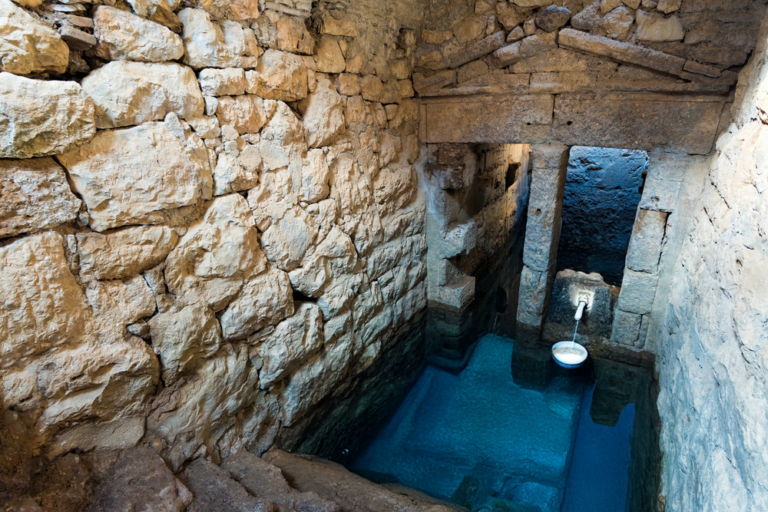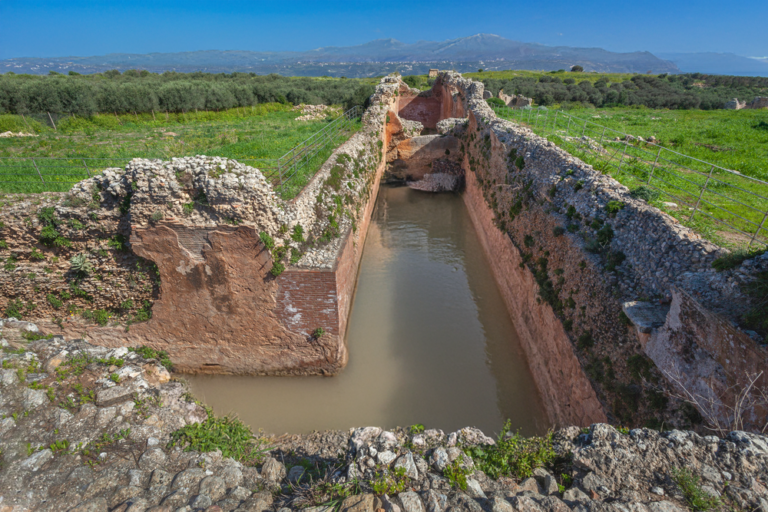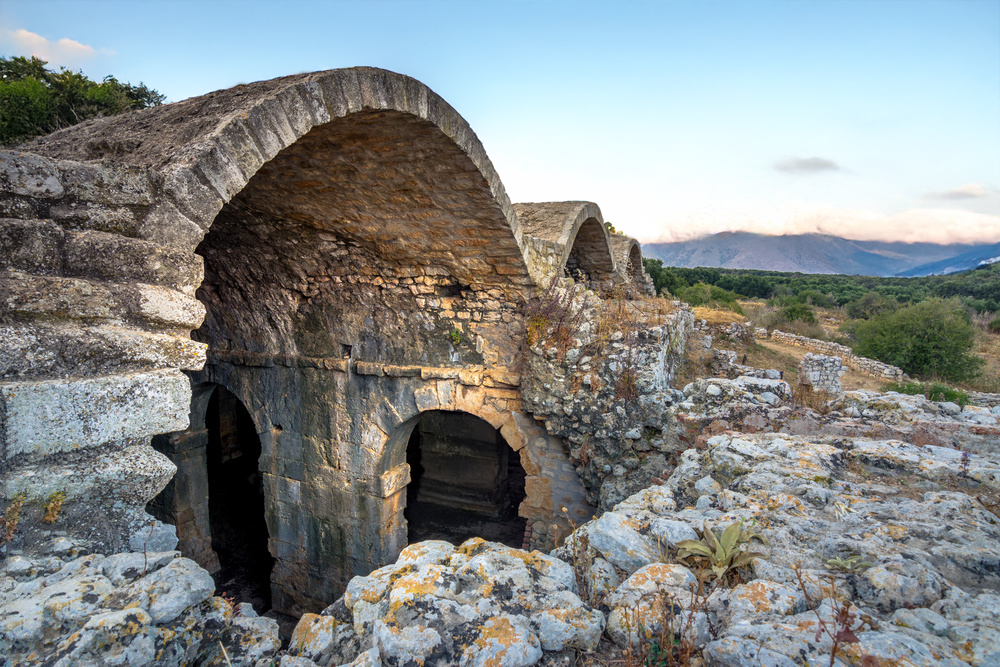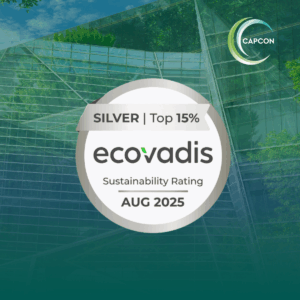Drawing inspiration from ancient Greek rainwater harvesting techniques
Water is one of our most essential resources, and managing it effectively has been crucial to human survival and prosperity since ancient times. At Capcon Engineering, we are inspired by history’s pioneers in rainwater harvesting—the ancient Greeks—whose inventive approaches continue to influence modern water conservation and management strategies.
Ancient Greek Mastery of Rainwater Collection
Ancient Greek civilisations, especially on the island of Crete and in cities like Athens, faced considerable water scarcity, which led to some of the earliest sophisticated rainwater collection systems. Around 2000 BCE, the Minoans on Crete designed a network of terracotta pipes and gutters that channelled rainwater into large underground cisterns.
Cisterns are engineered structures designed primarily for the storage of water, typically constructed as waterproof reservoirs. These systems have historically been employed in regions with limited water availability, offering a practical solution for rainwater harvesting and water conservation. Cisterns can be situated above or below ground and are commonly lined with materials that prevent leakage to ensure efficient water storage and supply. Their use dates back to ancient civilizations and remains relevant in modern water management practices due to their simplicity and effectiveness in collecting and retaining water
Maliva and Missimer, 2012

In Athens, architectural designs incorporated sloping rooftops and strategically positioned channels to capture and redirect rainwater into cisterns beneath public buildings. While most private homes likely continued to depend more on wells and simpler water management techniques, the development of public systems such as these demonstrated a keen awareness of water scarcity and resource sustainability-related challenges that still exist today (Angelakis et al., 2013).
Sustainable Practices Rooted in Environmental Harmony
The rainwater systems of ancient Greece were not merely functional—they were part of a broader philosophy of environmental harmony. By capturing and conserving rainwater, the Greeks relieved the burden on rivers, lakes, and natural freshwater sources, minimising the risk of depletion and maintaining ecological balance (See Krasilnikoff and Angelakis, 2019). Moreover, it could be argued that their use of natural, locally sourced clay and stone aligns with a modern-day commitment to sustainability by, incidentally or not, reducing the environmental impact of their constructions (See Angelakis, Voudouris, and Tchobanoglous, 2020).

Capcon Engineering draws from this age-old wisdom in our designs, prioritising sustainability and longevity in every solution we deliver. Just as the Greeks tailored their rainwater systems to meet local needs, we customise our rainwater harvesting solutions to align with each client’s unique requirements and local environmental conditions, from commercial sites to industrial facilities. Capcon uses advanced materials and technologies to ensure efficient, durable solutions that enhance resource conservation and contribute to preserving our water supplies.
Modern Applications of Ancient Techniques
Today’s water scarcity and climate challenges highlight the importance of innovative yet sustainable approaches to water management. While modern rainwater harvesting systems benefit from advanced materials, sensors, and filtration technologies, they are rooted in the same foundational concepts the Greeks employed to capture and store rainwater (See Angelakis, Voudouris, and Tchobanoglous, 2020).
Capcon Engineering applies these principles with cutting-edge technology, offering rainwater harvesting systems equipped with filtration for water quality and automated controls for optimised collection and distribution. By integrating historical methods with modern advancements, we create robust, sustainable solutions that meet regulatory standards, reduce operational costs, and contribute to greener, more efficient buildings. This blend of ancient wisdom and modern technology is essential to address current water management needs, particularly as companies seek to lower their environmental footprint.
Embracing Sustainability for the Future
Capcon Engineering’s mission as The Rainwater Specialists is to champion sustainability by helping clients achieve greater water efficiency and resilience. The timeless practices of the ancient Greeks remind us that even today, there is power in simplicity and sustainability. Capturing and conserving rainwater remains one of the most effective ways to support sustainable water management, reduce costs, and minimise dependence on overstretched freshwater sources.
By integrating ancient techniques with today’s technologies, Capcon provides solutions that address immediate water conservation needs and contribute to a more sustainable future. In following the path of the ancients, we are inspired to create a legacy of water stewardship, one project at a time.
Discover more about how Capcon Engineering’s rainwater harvesting solutions can provide effective, sustainable water management tailored to your unique needs.
Biography
-
- Angelakis, A. N., Dialynas, M. G., Despotaki, V., and Tchobanoglous, G. (2020) ‘Evolution of water supplies in the Hellenic world focusing on water treatment and modern parallels’, Water Supply, 20(3), pp. 773-786. Available at: https://iwaponline.com/ws/article-abstract/20/3/773/72561/Evolution-of-water-supplies-in-the-Hellenic-world?redirectedFrom=fulltext (Accessed: 15 November 2024).
- Angelakis, A. N., De Feo, G., Laureano, P., and Zourou, A. (2013) ‘Water technologies in ancient Greece’, Water, 5(3), pp. 972-987. Available at: https://www.mdpi.com/2073-4441/5/3/972 (Accessed: 15 November 2024).
- Krasilnikoff, J. and Angelakis, A. N. (2019) ‘Water management and its judicial contexts in ancient Greece: A review from the earliest times to the Roman period’, European Academy of Sciences and Arts. (Accessed: 15 November 2024).
- Maliva, R., and Missimer, T. (2012). Ancient Water Management. In Arid Lands Water Evaluation and Management, Springer, Berlin, Heidelberg, pp. 501–527.
Written by
Meet Julia Cavanaugh
Sustainability & Technical Design Engineer







